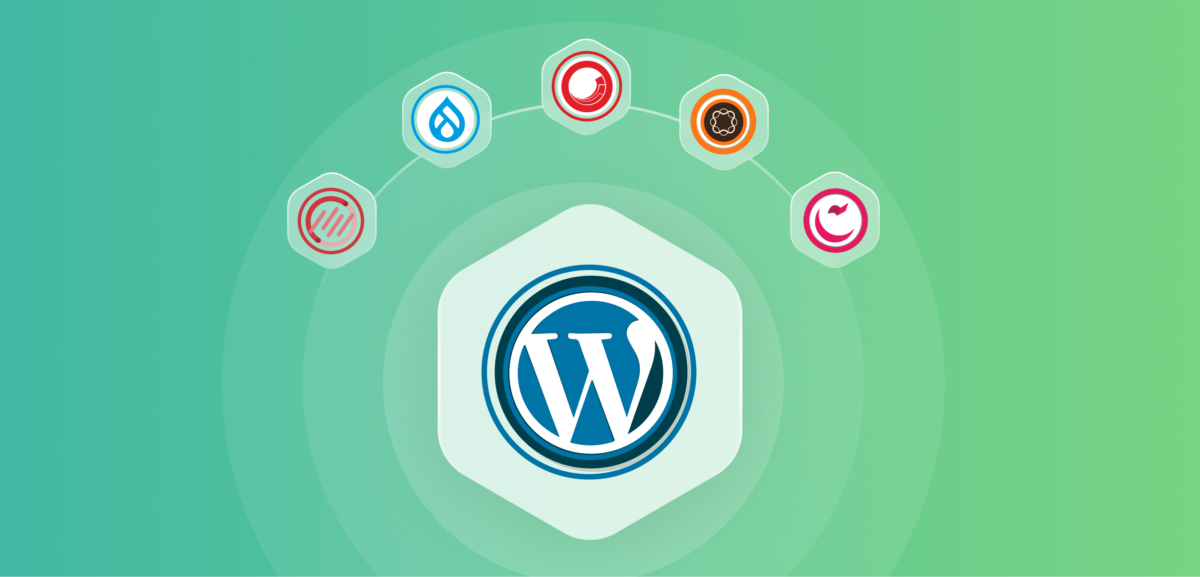Choosing the Right CMS: How WordPress Stacks Up Against the Competition
Martin Szigeti

Discover Why WordPress Remains a Top Choice in the World of CMS
Choosing a Content Management System (CMS) can make or break your online success when building a website. WordPress has long been a favorite, powering a significant portion of the web. But how does it stack up against other popular CMS options? In this series, we dive deep into WordPress’s features, flexibility, and user-friendliness compared to its competitors, helping you decide which CMS is best for your needs. If you’re still weighing your options, explore why WordPress is perfect for higher education sites.
WordPress vs Drupal.
Ease of use
WordPress: Known for its user-friendly interface, WordPress’s intuitive dashboard and simple content creation process make it easy for non-technical users to manage. If you’re ready to explore how to make the most out of WordPress’s Gutenberg editor, check out our detailed guide on how to convert your site into a lead generation tool using Gutenberg.
Drupal: Drupal, on the other hand, offers advanced customization options that are ideal for experienced developers. However, WordPress’s simplicity stands out for marketing teams looking for agility and speed.
Customization and Flexibility
WordPress: Initially a blogging platform, WordPress has evolved to support a wide range of websites. With customizable themes and plugins, it adapts to almost any type of site. If you’re interested in why custom themes can make a big difference, read about the importance of having a custom WordPress theme.
Drupal: While Drupal also offers high customization, its learning curve is steep, and it’s generally preferred by technical teams who need deep control over their website’s functionality. WordPress remains more accessible for marketers who need flexibility without heavy reliance on developers.
Security
WordPress: WordPress’s popularity means it receives regular updates and has an active community contributing to its security. However, security also depends on how you implement the platform. Learn more about how WordPress security is better than you think.
Drupal: Drupal is known for its robust security measures and is often used for high-security projects like government websites.
Performance
WordPress: With the right optimizations (such as caching plugins and CDN integration), WordPress can run efficiently even under heavy traffic. At 40Q, we specialize in optimizing high-traffic WordPress sites.
Drupal: Drupal excels at handling complex, content-heavy, and high-traffic websites, but it requires advanced optimization techniques that often require dedicated development teams.
Community Support
WordPress: WordPress is the most popular CMS in use and has a vast community support with abundant resources such as forums, tutorials, and videos. This large community is an advantage for troubleshooting and optimizing your site.
Drupal: Although smaller than the WordPress community, the Drupal community is highly engaged and professional. As a downside, finding Drupal experts sometimes can be difficult.
Cost
WordPress: As the most popular CMS, WordPress benefits from a vast community, providing endless resources, forums, tutorials, and updates. The 40Q team leverages this rich ecosystem to build solutions tailored to your needs. See how we implement WordPress for enterprise clients.
Drupal: Drupal’s community is smaller but highly engaged, though finding experienced developers for ongoing maintenance can be challenging compared to WordPress.
If you want to explore more about WordPress, we’ve created a comprehensive guide addressing all the needs of a highly efficient website and how WordPress can effectively solve them. Download our FREE guide.

Conclusion
The choice between WordPress and Drupal ultimately depends on your project’s specific requirements and your team’s technical expertise. WordPress might be the better choice for users looking for ease of use and broad community support. On the other hand, Drupal offers a robust framework suitable for complex, data-intensive websites where fine-grained control over permissions is necessary. Still undecided? Let’s talk it through. CLICK HERE and schedule a call with us today and we’ll help you make the best choice for your needs.
At 40Q, we are WordPress experts and we can elevate your website to new heights. Whether you need a complex information structure for higher education sites, a lead magnet machine for your enterprise, or a fantastic billboard for your media site, we can help you exceed your goals.


